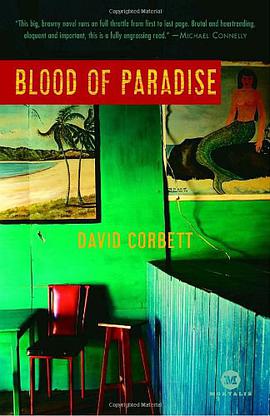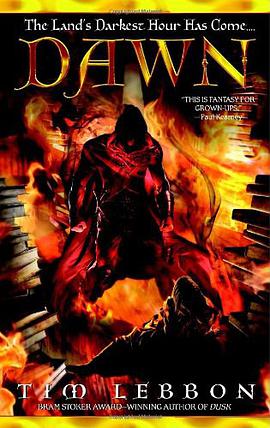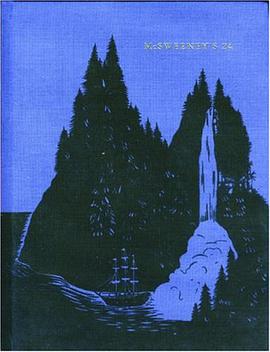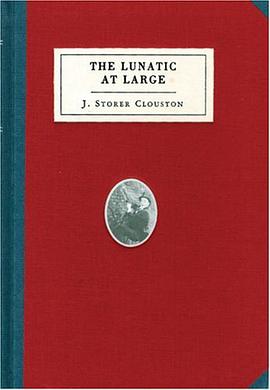

El Salvador: America’s great Cold War success story and the model for Iraq’s fledgling democracy–if one ignores the grinding poverty, the corruption, the spiraling crime, and a murder rate ranked near the top in the hemisphere. This is where Jude McManus works as an executive protection specialist, currently assigned to an American engineer working for a U.S. consortium.
Ten years before, at age seventeen, he saw his father and two Chicago cop colleagues arrested for robbing street dealers. The family fell apart in the scandal’s wake, his disgraced dad died under suspicious circumstances, and Jude fled Chicago to join the army and forge a new life.
Now the past returns when one of his father’s old pals appears. The man is changed–he’s scarred, regretful, self-aware–and he helps Jude revisit the past with a forgiving eye. Then he asks a favor–not for himself, but for the third member of his dad’s old crew.
Even though it’s ill-considered, Jude agrees, thinking he can oblige the request and walk away, unlike his father. But he underestimates the players and the stakes and he stumbles into a web of Third World corruption and personal betrayal where everything he values–and everyone he loves–is threatened. And only the greatest of sacrifices will save them.
“This big, brawny novel runs on full throttle from first to last page. Brutal and heartrendering, eloquent and important, this is a fully engrossing read.”
–Michael Connelly
“A Quiet American for the new century. Angry and impassioned, Blood of Paradise is that rare beast: a work of popular fiction that is both serious and thrilling.”
–John Connolly, New York Times bestselling author of Every Dead Thing
“David Corbett is a supremely gifted writer and Blood of Paradise reminds me of a Robert Stone novel. Its lyrical prose and exotic setting filled with damaged souls grasping for redemption any way they can combine in a tour de force that will haunt you long after you reach the end.”
–Denise Hamilton, nationally bestselling author of Prisoner of Memory
“If you’re looking for the best in contemporary crime fiction, this is it.”
–The Washington Post, on Done for a Dime
_________________________________________________________________
THE MORTALIS DOSSIER- BONUS FEATURE FROM DAVID CORBETT
FROM TROY TO BAGHDAD (VIA EL SALVADOR)
The Story's Genesis
I conceived Blood of Paradise after reading Philoctetes, a spare and
relatively obscure drama by Sophocles. In the original, an oracle advises
the Greeks that victory over the Trojans is impossible without
the bow of Herakles. Unfortunately, it’s in the hands of Philoctetes,
whom the Greeks abandoned on a barren island ten years earlier,
when he was bitten by a venomous snake while the Achaean fleet
harbored briefly on its way to Troy.
Odysseus, architect of the desertion scheme, must now return,
reclaim the bow, and bring both the weapon and its owner to Troy.
For a companion, he chooses Neoptolemus, the son of his slain
archrival, Achilles.
Neoptolemus, being young, still holds fast to the heroic virtues
embodied by his dead father, and believes they can appeal to
Philoctetes as a warrior. But Odysseus–knowing Philoctetes will
want revenge against all the Greeks, himself in particular–
convinces Neoptolemus that trickery and deceit will serve their
purposes far better. In essence, he corrupts Neoptolemus, who subsequently
deceives Philoctetes into relinquishing his bitterness to
reenlist in the cause against Troy.
The tale has an intriguing postscript: It turns out to be the corrupted
Neoptolemus who, by killing King Priam at his altar during
the sack of Troy, brings down a curse upon the Greeks even as they
are perfecting their victory.
This story suggested several themes, which I then molded to my
own purposes: the role of corruption in our concept of expedience,
the need of young men to prove themselves worthy in the eyes of
even morally suspect elders (or especially them), and the curse of a
hard-won ambition.
Why El Salvador?
I saw in the Greek situation a presentiment of America’s dilemma at
the close of the Cold War: finally achieving unrivaled leadership of
the globe, but at the same time being cursed with the hatred of millions.
Though we have showered the world with aid, too often we
have done so through conspicuously corrupt, repressive, even murderous
regimes, where the elites in charge predictably siphoned off
much of that aid into their own pockets. Why did we look the other
way during the violence and thievery? The regimes in question were
reliably anticommunist, crucial to our need for cheap oil, or otherwise
amenable to American strategic or commercial interests.
We live in a dangerous world, we are told. Hard, often unpleasant
choices have to be made.
It’s a difficult argument for those who have suffered under such
regimes to swallow. They would consider it madness to suggest that it
is envy of our preeminence, or contempt for our freedom, that causes
them to view America so resentfully. Rather, they would try to get us
to remember that while their hopes for self-determination, freedom,
and prosperity were being crushed, America looked on with a
strangely principled indifference, often accompanied by a fiercely patriotic
self-congratulation, not to mention blatant hypocrisy.
Not only have we failed to admit this to ourselves, but the New
Right has embraced a resurgent American exceptionalism as the antidote
to such moral visitations, which such conservatives consider
weak and defeatist. Instead, they see a revanchist America marching
boldly into the new century with unapologetic military power, uninhibited
free-market capitalism, and evangelical fervor–most immediately
to bring freedom to the Middle East.
The New Right’s historical template for this proposed transformation
is Central America–specifically El Salvador, trumpeted as
“the final battleground of the Cold War,” and championed as one of
our greatest foreign policy successes: the crucible in which American
greatness was re-forged, banishing the ghosts of Vietnam forever.
There’s a serious problem with the New Right’s formulation,
however: It requires an almost hallucinatory misreading of history.
Misremembering the Past
In their ongoing public campaign to justify the Iraq war, many
supporters and members of the Bush Administration–including
both Vice President Dick Cheney and former defense secretary Donald
Rumsfeld–have singled out El Salvador as a shining example of
where the “forward-leaning” policy they champion has succeeded.
Mr. Cheney did so during the vice presidential debates, contending
that Iraq could expect the same bright future enjoyed by El Salvador,
which, he claimed, is “a whale of a lot better because we held
free elections.”
What Mr. Cheney neglected to mention:
• At the time the elections were held (1982), death squads
linked to the Salvadoran security forces were murdering
on average three to five hundred civilians a month.
• The death squads targeted not just guerrilla supporters
but priests, social workers, teachers, journalists, even
members of the centrist Christian Democrats–the party
that Congress forced the Reagan Administration to back,
since it was the only party capable of solidifying the
Salvadoran middle.
• The CIA funneled money to the Christian Democrats to
ensure they gained control of the constituent assembly.
• Roberto D’Aubuisson, a known death squad leader,
opposed the Christian Democrats as “Communists,” and
launched his own bid to lead the constituent assembly,
forming ARENA as the political wing of his death squad
network. His bid was funded and supported by exiled
oligarchs and reactionary military leaders, and managed
by a prominent American public relations firm.
• “Anti-fraud measures” proved intimidating. For example:
ballots were cast in glass jars. Many voters, who had to
provide identification, and who suspected the government
was monitoring their choices, feared violent reprisal if
they were observed voting “improperly.”
• ARENA won thirty-six of sixty seats in the assembly, and
D’Aubuisson was elected its leader.
• This was perceived by all concerned as a disastrous
failure for American policy. When D’Aubuisson tried
to appoint one of his colleagues as assembly president,
U.S. officials went to the military and threatened to cut
off aid. D’Aubuisson relented, but it was the only
concession he made to American demands.
In short, there was American influence, money, and manipulation
throughout the process, putting the lie to the whole notion the
elections were “free”–though Mr. Cheney was arguably correct
when he stated that “we” held them. Unfortunately, all that effort
came to naught, as what America wanted from the elections lay in
shambles. Even when, in the following year’s election, a great deal
more money and arm-twisting resulted in Washington’s candidate
being elected president, he remained powerless to reform the military,
curtail the death squads, or revive the economy, measures
Washington knew to be crucial to its counter-insurgency strategy.
By 1987, the Reaganites decided to abandon the decimated Christian
Democrats for ARENA–the party it had spent five years and
millions of dollars trying to keep from power.
As for Mr. Rumsfeld’s remarks, he made them in the course ...
具體描述
讀後感
評分
評分
評分
評分
用戶評價
相關圖書
本站所有內容均為互聯網搜索引擎提供的公開搜索信息,本站不存儲任何數據與內容,任何內容與數據均與本站無關,如有需要請聯繫相關搜索引擎包括但不限於百度,google,bing,sogou 等
© 2025 qciss.net All Rights Reserved. 小哈圖書下載中心 版权所有




















